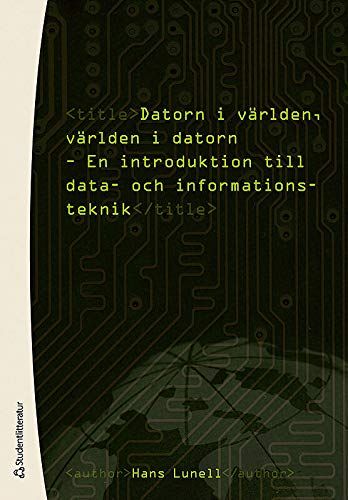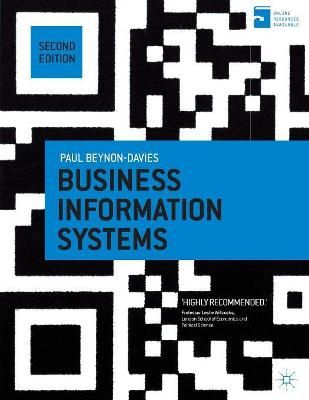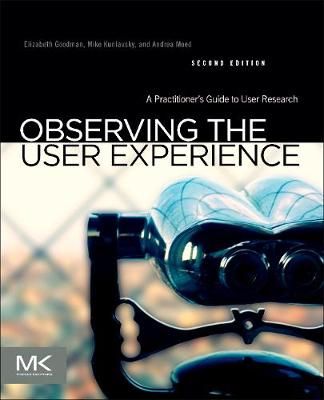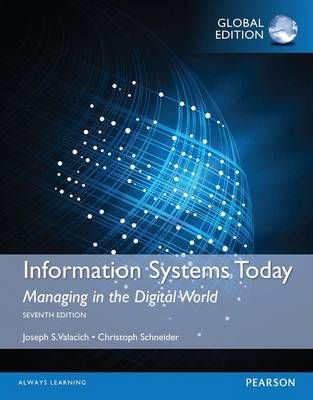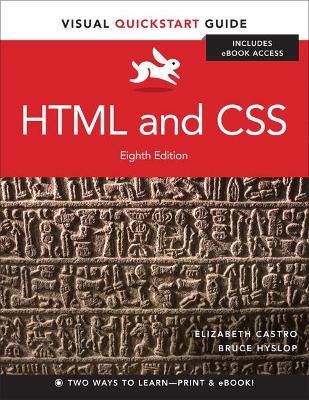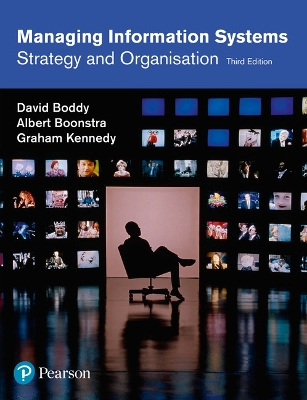

Managing Information Systems Upplaga 3
- Upplaga: 3e upplagan
- Utgiven: 2008
- ISBN: 9780273716815
- Sidor: 336 st
- Förlag: Pearson
- Format: Häftad
- Språk: Engelska
Om boken
Modern information technologies are transforming the delivery of goods and services, but managers face organisational and strategic issues as they decide how to respond to these opportunities.
This book draws on empirical research to present a distinct strategic and organisational perspective on the management of computer-based information systems.
Adopting a management approach, this third edition of Managing Information Systems: Strategy and Organisation maintains a four-part framework of foundations, strategy, organisation and implementation.
Thoroughly revised and updated, the new edition includes:
A new chapter on the social contexts of information systems, including discussions of data privacy, intellectual property and ethics Substantially revised material on implementation in Part Four, combining both conceptual and practical issues, and covering the problems of assessing costs and benefits New and revised recurring chapter cases illustrating current practices in companies such as Zara, Google, Tesco, RBS and Nokia The book also includes learning features designed to promote critical reflection and further research such as:
Case questions to explore the link between current practice and theoretical perspectives MIS in practice and Activity boxes to encourage the reader to reflect on the themes explored in the chapter End-of-chapter questions to enable readers to test their understanding of topics Weblinks and references to offer sources of further information and ideas.
About the authors:
David Boddy is a Research Fellow in the Department of Management at the University of Glasgow. He teaches courses for experienced managers on the management issues raised by computer-based information systems, which is the focus of his research. He is the author of two other books: Management: An Introduction (2007); and Managing Projects: Building and Leading the Team (2002) both published by Pearson Education.
Albert Boonstra is an associate professor at the Faculty of Management and Organisation, University of Groningen, The Netherlands. His research focuses on the human and organisational issues of implementing and using information and communication technologies. He teaches IT-management-related courses, and consults in the management of information systems for profit and not-for-profit organisations.
Graham Kennedy works in the internal consultancy division of the Royal Bank of Scotland. He has over eighteen years experience as a manager of change initiatives in industries as varied as financial services and engineering. This has provided him with many insights into the opportunities and problems which new technologies present to users.
Åtkomstkoder och digitalt tilläggsmaterial garanteras inte med begagnade böcker
Mer om Managing Information Systems (2008)
I november 2008 släpptes boken Managing Information Systems skriven av David Boddy. Det är den 3e upplagan av kursboken. Den är skriven på engelska och består av 336 sidor. Förlaget bakom boken är Pearson som har sitt säte i London.
Köp boken Managing Information Systems på Studentapan och spara uppåt 80% jämfört med lägsta nypris hos bokhandeln.
Referera till Managing Information Systems (Upplaga 3)
Harvard
Boddy, D. (2008). Managing Information Systems. 3:e uppl. Pearson.
Oxford
Boddy, David, Managing Information Systems, 3 uppl. (Pearson, 2008).
APA
Boddy, D. (2008). Managing Information Systems (3:e uppl.). Pearson.
Vancouver
Boddy D. Managing Information Systems. 3:e uppl. Pearson; 2008.

